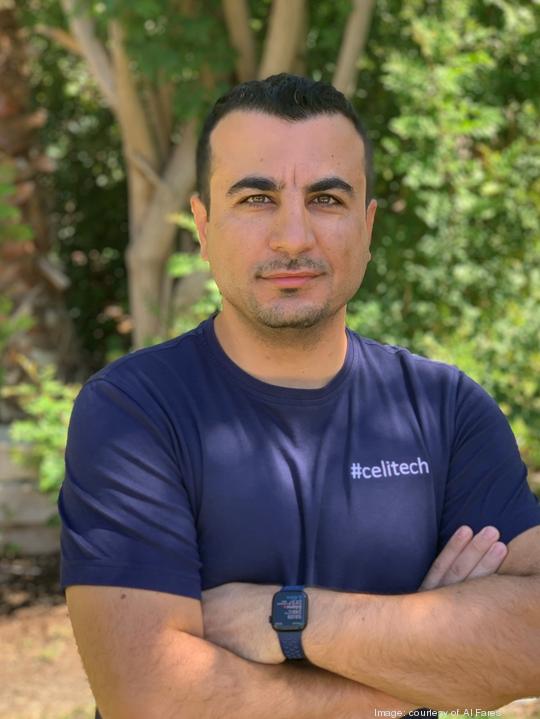
Say you’re traveling to Paris for leisure or business, but don’t want to incur expensive fees by turning on the roaming feature on your smart devices.
Well, you’re not alone.
There’s currently an untapped market of international travelers who turn off roaming because they don't want to shell out big bucks for it.
But as new technology hits the market, it’s starting to make international communication more accessible and affordable.
It's known as e-SIM and it's the next iteration of a physical SIM card. Those cards are embedded chips in smart devices enabling travelers to connect to wireless networks. Now, eSIM does the same thing without a card. It enables a myriad of smart devices to connect remotely to mobile networks using QR codes.
And, there’s a convergence of circumstances causing the proliferation of this technology.
For starters, international travel is rebounding this year. The International Air Transport Association is forecasting a full recovery by next year.
Plus, the global telecom market is expected to grow from $2.6 trillion in 2021 to $2.9 trillion this year at a compound annual growth rate of 8.5%. And, the global roaming tariff market size is estimated to be about $63 billion this year.
Enter Celitech, founded by Al Fares, which is headquartered in Santa Clarita. The company caters to online travel companies — like Expedia and Kayak — and offers them co-branded international cellular data plans, using proprietary e-SIM technology.
The startup just closed its seed round, raising $1.2 million. Cove Fund, based in Orange County, led the round with a $675,000 investment. Other investors included Tech Coast Angels Orange County, Blue Startups and Hawaiian Angels.
The Cove Fund did due diligence on an enormous amount of companies — 700 — in the first half of this year, and invested in only two companies. Celitech was one of them.
"We believe that there’s a huge market potential for Celitech to dominate the e-SIM market and have confidence in the leadership team to effectively execute on their business plan,” Mike Benvenuti, one of the managers of the Cove Fund told LA Inno. “During our diligence efforts, we tested Celitech’s e-Sim roaming technology in several European countries and were amazed at how simple and convenient it was to connect with the local cellular infrastructure at a fraction of the cost of the existing data roaming options.”
Foundation
A combination of factors catalyzed Fares to start Celitech. First, being raised by a single mom at the end of the Lebanese Civil War imbued him with the entrepreneurial life skills of resilience and perseverance.
“Thanks to the internet, the little kid from the Beirut slums managed to live and work in over 50 countries, before being awarded an Einstein green card to call L.A. home,” he said.
An Einstein green card is a top-tier category for those with extraordinary skills in science, the arts and other fields.
Sacrebleu!
Then, there was Fares’ frustration with the cost of international data roaming.
“I visited over 100 countries and was always frustrated with pricey data roaming,” he said.
Once, while visiting Paris he got charged $150 for one email.
The constant quest to buy local SIM cards also proved challenging, he added, due to time constraints while traveling and having to search for local shops to buy them. Plus, having to take out an existing SIM card and swap it for a local one was also a hassle.
Fares was not content to wait to see if wireless carriers would take any action. He doubted they had the incentive to do that, as they could incur high fixed costs to offer affordable roaming, especially since they face a lot of pricing competition on their main local offerings.
So, he drew on his prior experience as an engineer, executive and co-founder of Acsys Technologies, based in Hong Kong. This company pioneered programmable access to the cell sites of telecom companies by time, location and user — using smart locks that don’t need any power source. The company evolved from access management to asset/workforce management, and grew globally to serve new verticals beyond telecom.
In 2016, the company received a full buyout offer from a company listed on the Swiss stock market.
But Fares and his co-founders opted not to sell. He left two years later to permanently move to the U.S. and explore starting his next company.
Eventually, he brought on Richard Bratton as a co-founder of Celitech. As a former VP of Kayak — from early stage through post-IPO — Bratton brought deep travel sales experience to the table.
The company did a soft launch in Q3 of last year. Fares expects to do a hard launch in Q4 of this year.
Funding
To start, Fares self-funded the endeavor with $450,000. Then, a couple of angel investors from his previous companies pitched in another $275,000.
Celitech has raised $2 million in total to date. Fares said he plans to open a Series A round next year. A prerequisite for that would be hitting monthly revenue targets of $100,000 he added.
The company plans to use its seed funding to accomplish goals including building out its sales team, expanding its service coverage areas and further developing its IP portfolio.
Business Model
The company uses a subscription-based business model. It provides travel companies with the ability to offer e-SIM technology as an ancillary service, which opens up new streams of revenue and mobile engagement for them.
It also can enable their clients to save up-to 80% on data roaming, Fares said, depending on where they’re traveling to and from.
Celitech is active in the U.S. and in more than 160 countries, via wireless networks like AT&T, Vodafone and Telefonica.
Sales and Revenue
Fares declined to disclose revenue for 2021. He did say that July 2022 revenue was about twice as much as the annual revenue for all of last year.
Inflation and other world events have not put a damper on international travel, he said.
“Our (technology) is currently integrated in thousands of trip bookings per day, and we can see the trends of increasing spending on international travel," he said.



